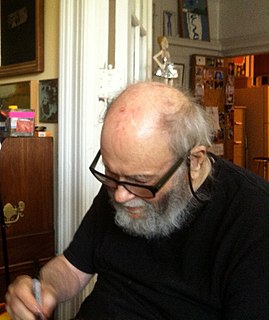A Quote by Sterling W Sill
It is a serious mistake to judge God within the narrow limits of our own understanding and abilities.
Related Quotes
In my own version of the idea of 'what art wants,' the end and fulfillment of the history of art is the philosophical understanding of what art is, an understanding that is achieved in the way that understanding in each of our lives is achieved, namely, from the mistakes we make, the false paths we follow, the false images we have come to abandon until we learn wherein our limits consist, and then how to live within those limits.
I think the Bhagavad Gita is about both the forces of light and the forces of darkness that exist within our own self, within our own soul; that our deepest nature is one of ambiguity. We have evolutionary forces there - forces of creativity, and love, and compassion, and understanding. But we also have darkness inside us - the diabolical forces of separation, fear and delusion. And in most of our lives, there is a battle going on within ourselves.
Things and persons appear to us according to the light we throw upon them from our own minds. How unconsciously we judge others by the light that is within ourselves, condemning or approving them by our own conception of right and wrong, honor and dishonor! We show by our judgment just what the light within us is.



































